Geri Halliwell-Horner Is Finding Girl Power Anew in Young Adult Literature
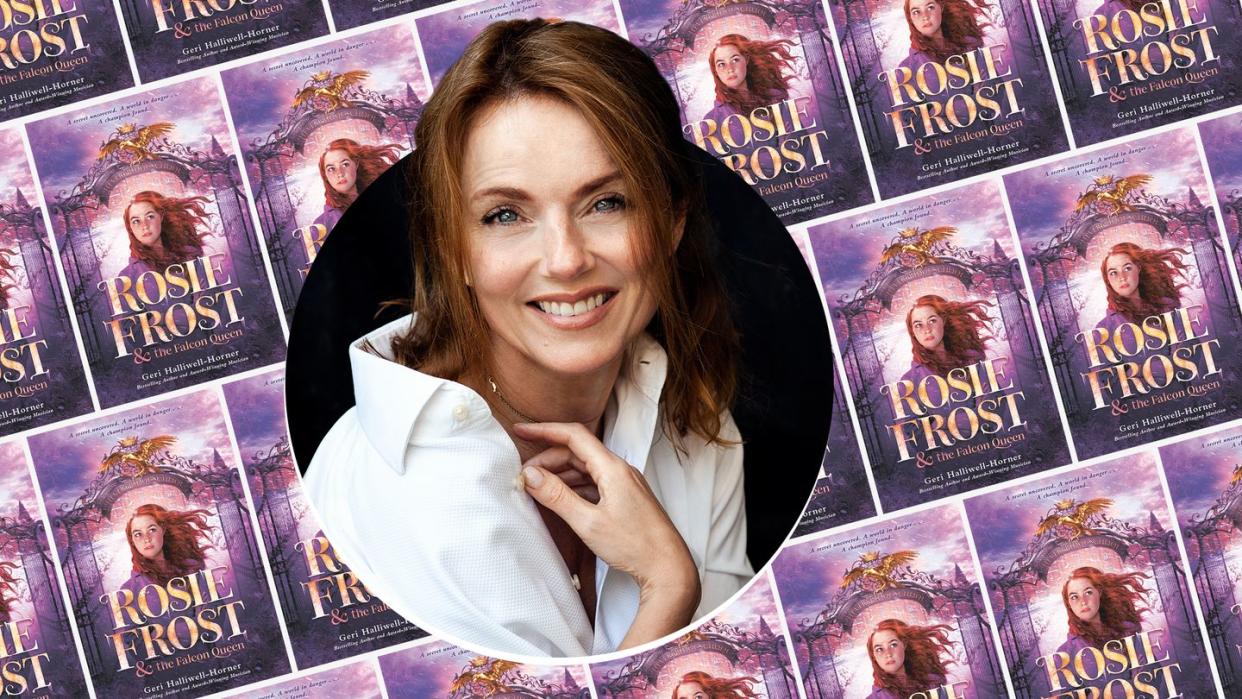
"Hearst Magazines and Yahoo may earn commission or revenue on some items through these links."
Geri Halliwell-Horner is no stranger to reinvention.
First came Ginger Spice, of the Spice Girls, of course, before she embarked on a solo career. She's since dabbled in acting, including as a guest star on a memorable Sex and the City episode and in the recent recent summer blockbuster Gran Turismo, and served as a guest judge on The X Factor. She's also an activist, working as a Goodwill Ambassador with the UN, and with Prince William on his campaign to end homelessness. And now, she's in her author era. Following her two memoirs If Only and Just for the Record, plus her children's book series, Ugenia Lavender, she's trying her hand at young adult fiction with Rosie Frost and the Falcon Queen. But throughout her career, the idea of "girl power" has remained strong.
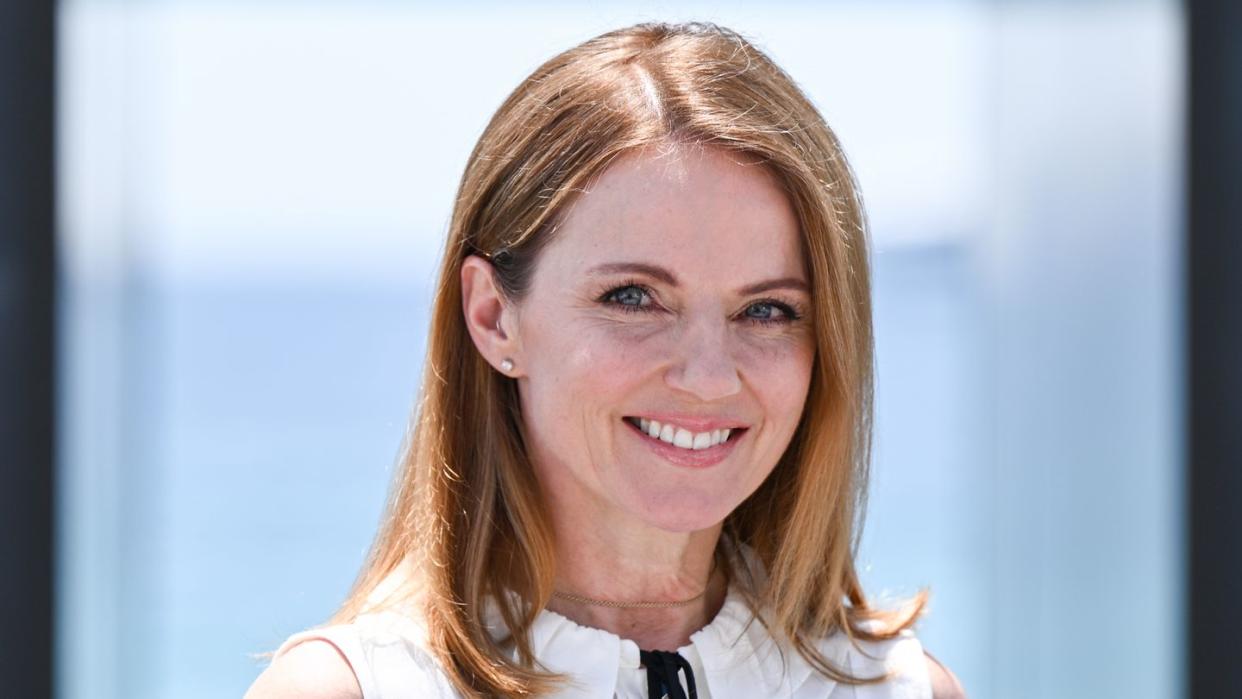
Her novel, Rosie Frost and the Falcon Queen, comes out today, and tells the story of Rosie, an orphaned girl sent to a fictional Heverbridge School founded by Queen Elizabeth I in honor of her mother, Anne Boleyn (whose emblem was a falcon) on the mysterious Bloodstone Island. Writing Rosie Frost "is a dream come true for me," she tells Town & Country. Here, she chats about the inspiration behind Rosie, why she wanted to include Anne Boleyn in her story, and her upcoming book tour in the U.S.
What made you decide to write Rosie Frost?
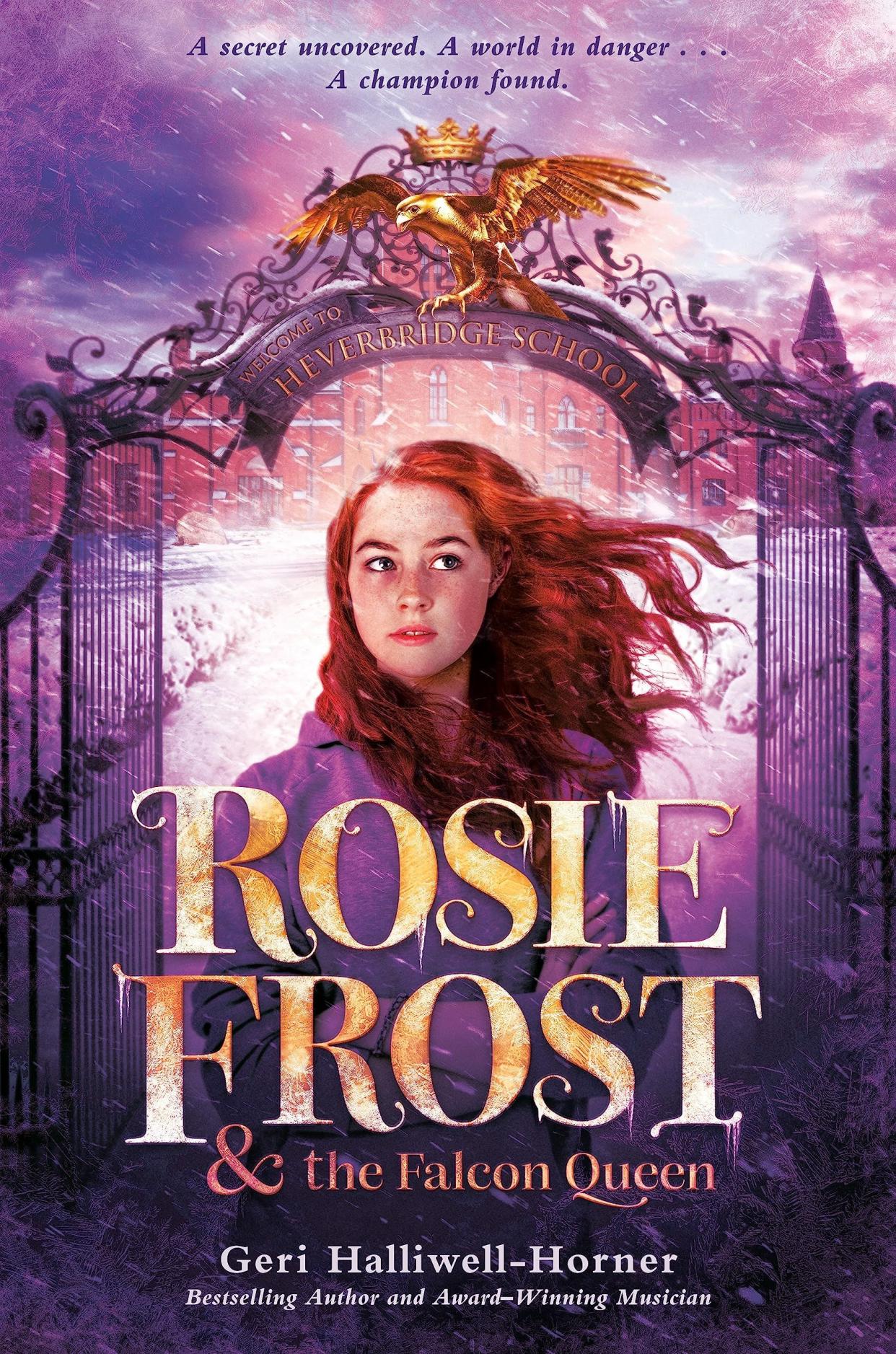
Rosie Frost and the Falcon Queen
amazon.com
$17.99
I just love reading, I love writing and the power of words. I studied English literature before I was in the band. I've written children's books before, much younger. I really want to age her up. I went and asked Christopher Little, who discovered J.K. Rowling, I said, 'Do you think I should just age my previous character up?' And he said 'No, start again.' So I did.
I've really felt like the world needs a new hero. Someone ordinary. A hero now is vulnerable, finds the courage they never knew they had. It's not for me, the alpha girls or boys—I can't relate to that. I found strength in characters. At every age, sometimes we need to find our power in different mediums.
What was your inspiration for Rosie?
You always have a little bit of your own [self] in there. I definitely felt like a fish out of water myself. I felt challenges in circumstances where as a young adult, I wanted to find my own power and my own voice. Even as a grown up, you could still find it challenging in different circumstances. So I felt compelled in for that reason.
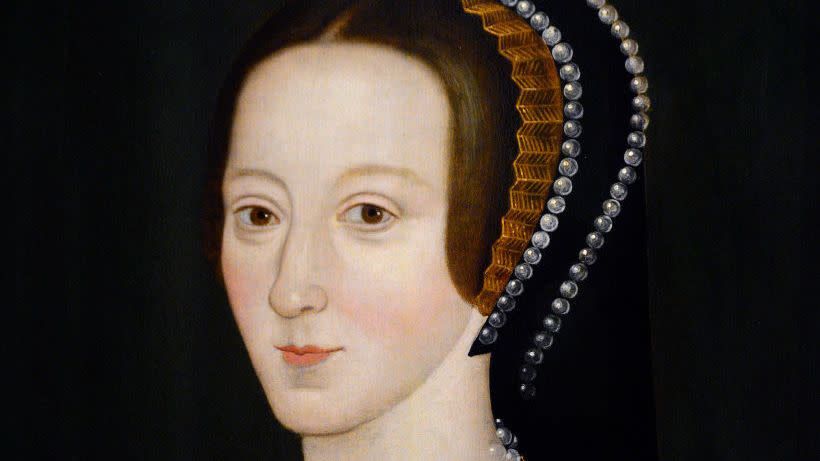
It's based in modern times, but I've always loved the Tudor times. I thought, oh, should we give the school a theme of a Queen Elizabeth? And I thought, well, what about Anne Boleyn? And I got advice, don't go near Anne Boleyn. She's too contentious, a polarizing character. The more I thought about it and looked, I thought, actually she's really smart and interesting. She was shamed just because she was married to a misogynistic pig and the people around were threatened by her. I saw her as just a woman. She was executed in her late twenties. She left a 3 year old child. It's awful! This woman deserves redemption—she deserves a rebrand.
We all can feel on the back foot, or on the outside. So anyone that feels marginalized in any way, I just think, how do we come together by sharing our stories?
Talk to me about writing your memoirs, the Ugenia Lavender series, and Rosie Frost. How did you approach writing each one for a different audience?
Oh my God, to me, I mean, to me, chapeau [hat's off!] to anyone that's written a book because writing this book, it was a baptism of fire. It was only afterwards and during it, I really learned to write. I had someone help me—William Boyd, he wrote Any Human Heart, he's like the Beethoven of literacy! I was really stuck and he said, rewrite it, but now in the third person, past tense. He said to me, sometimes you can start writing a book with structure first—you know that this is gonna happen, this is gonna happen, then it's gonna end here.
So you structure it like a skeleton, but with Rosie, initially, I didn't; I just went on a journey with her. I knew a few things that were going to happen, but there's some freedom in that. After, I had to fix the narrative. The characters always remained the same, but the narrative, the way it sort of evolved, it was like operating on a body. I always felt very protective and inspired by the characters. Writing has definitely been a challenge and a discipline, but I love it! You get to play God.
What is your writing routine like? Do you write in the mornings?
My mind is definitely fresher in the morning. If I have to do any editor's notes that they've given me, best do it in the morning. Sometimes I've written those pieces in Rosie that are quite emotional, or something a bit darker, I've written that, like—I've got out of bed, like 2 a.m., 'I just got to put this down!' My husband's like, 'What are you doing?'
I have a writing shed in my garden, where I wrote a lot during lockdown. I need a quiet house and no phone—a phone is a creative a killer, which is a bit tricky if you're gonna go on a computer, because you gotta turn your emails off. Stephen King, I read one of his how to write books [On Writing], and he said go in a dark room. I found another place that was really dark, it had a gallery—I went in there and that was quite immersive.
Do you find songwriting and book writing have similarities, or they use different parts of your brain?
I really love writing from the heart—emotive and connective. I think they can both do the same thing. With writing a book, you've got to be more expansive and more descriptive. It's just a different discipline, but both are very rewarding. I never stopped writing songs. I always knew that I wanted to continue writing music, because that was my favorite thing. Look, I'm no Mariah Carey, but one of my most enjoyable things was always writing the lyrics and the top line.
The Spice Girls were all about girl power, and that’s definitely a theme in Rosie. Since your time in the band, has your understanding of girl power shifted?
The essence is there in my spirit, in my DNA. My understanding of respect for what's gone before—I heard it quoted on a show the other day, they were quoting Shakespeare and they said, 'what's past is prologue.' Everything is written experiences for our present. If you think about the past has been through—my confidence is based a bit more on experience rather than a youthful bravado. Falling down enough times, I've had to get back up, and that ingénue, teenage bravado has run out. You have to lean on to something else.
When you look back on the Spice Girls now, how do you feel?
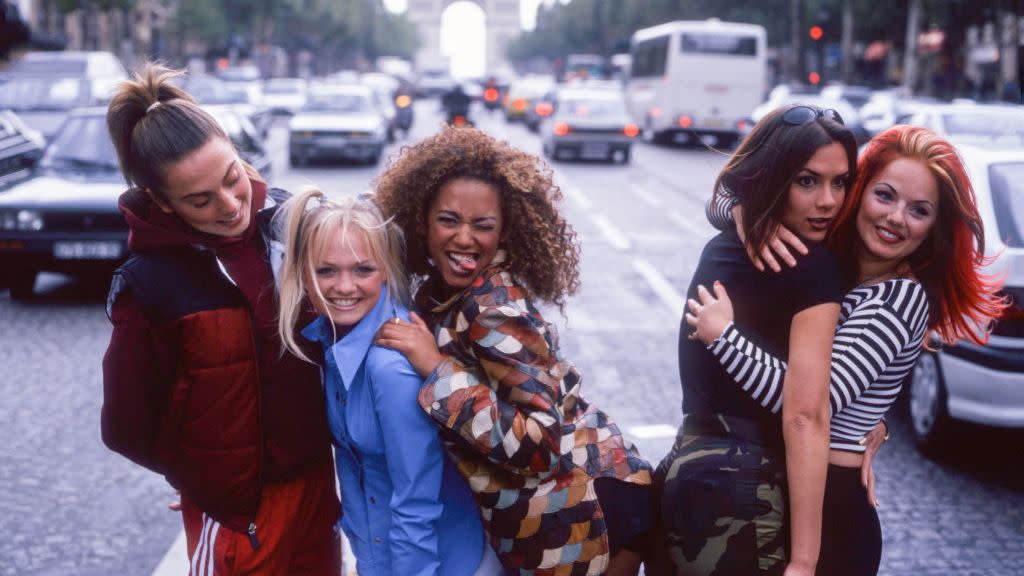
The Spice Girls belongs to everyone. It belongs to absolutely everybody. It's a soundtrack to our lives, a period of our time. When I meet some younger people and they go, 'Do you know, it really gave me courage or inspirational connection?' That's amazing.
N*SYNC just got back together, all these shows from the 90s are being rebooted…I have to ask: Are the rumors of a reunion true?
I would love to! I love the girls, I love being with them.
At the moment it's like, Rosie is just like having a child. I feel like she deserves this attention, but you love all your children. Each child needs more attention at a different time. So if, when that happens, that would be wonderful. It just depends—I don't know, we'll see.
Are you looking forward to your book tour? I know you're coming to America soon.
Amazing, I'm so thrilled. I did this book, called the Artist's Way, it makes you do a series of tasks. That was in America when I did that.
I love America because America taught me when I was a child that you're allowed to dream big and you can give things a try and it doesn't matter where you're from. If you're from the back end of New York or the fancy stage of Bel Air or Oklahoma: Everybody counts, everyone's allowed to try. That's America. America gave me that philosophy; I feel gratitude to America.
You don't that feel at home in England?
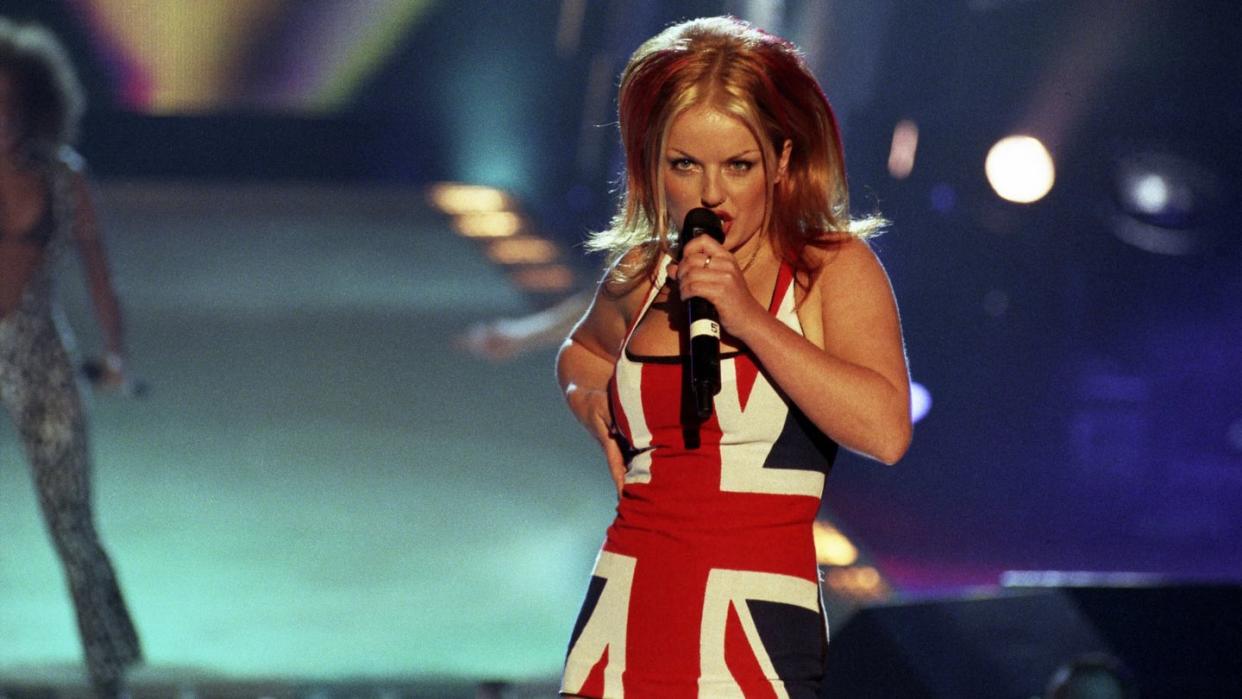
No, I do, I'm very patriotic. But if you learn about British people, we're quite modest. We don't want to over egg our omelet, so to speak. We're a little bit more modest about our achievements and our aspirations, outwardly. We're changing, but we learn from each other. We're like cousins, we pull each other over the wall.
What excites you most about Rosie Frost being out in the world?
When I see other people just connecting with her, connecting with that story, because I think she's a new kind of hero. She's vulnerable. If it inspires other people to follow their dreams or it fills their heart—it deals with grief, which is sometimes swept under the carpet. If it gives anyone comfort or inspiration or just entertainment it's quite a fast-turning adventure... That'd make me happy!
This interview has been lightly condensed and edited for clarity.
You Might Also Like
